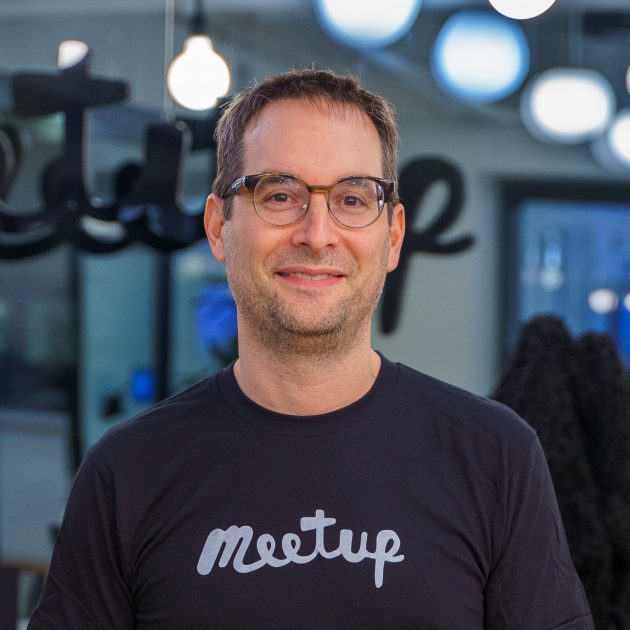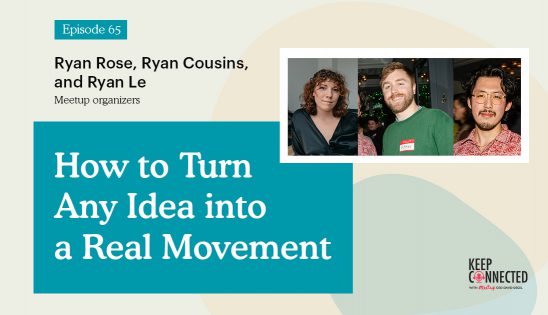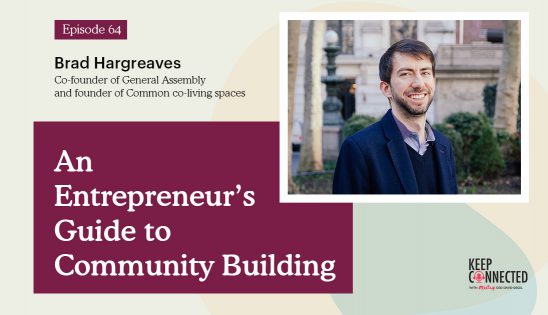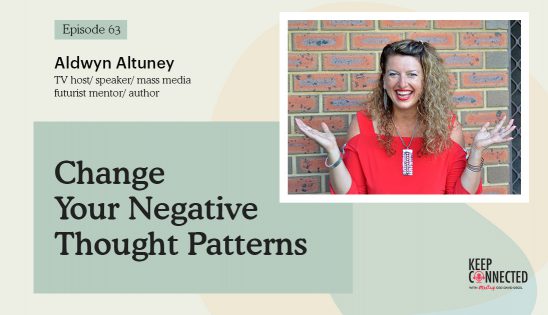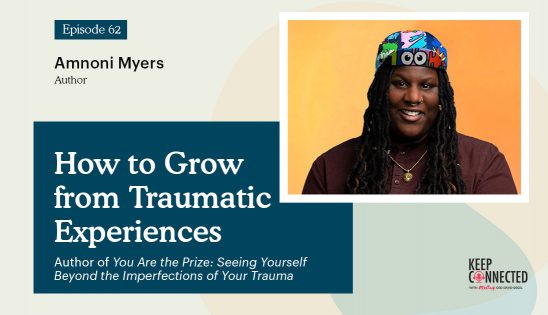There’s something powerful that happens when women from different walks of life come together to take charge of their finances. Sara Glakas, an investment advisor and organizer of Austin Women’s Investing Group on Meetup, joins Keep Connected with group member Caitlin Meredith to discuss the value of financial planning in a community setting. Learn about investing for the future, finding financial freedom, building a diverse community, and more!
Ranked as one of the top 25 CEO podcasts on Feedspot, Keep Connected with Meetup CEO David Siegel is a podcast about the power of community. For more details on other episodes, visit Keep Connected on the Meetup Community Matters blog.
We hope you’ll keep connected with us. Drop us a line at podcast@meetup.com. If you like the podcast, be sure to subscribe and leave us a rating on Apple Podcasts!
Learn more about Keep Connected host David Siegel’s experience as a leader and decision maker in his book, Decide & Conquer. Pre-order your copy today!
Show Notes
In this episode, we talk to Sara Glakas, the organizer of Austin Women’s Investing Group. We also have Caitlin Meredith, a member of the Austin Women’s Investing Group. It was such a great opportunity to have both an organizer and a member sharing their different perspectives. I enjoyed this episode and I hope you do too.
—
Sara and Caitlin, I’ve been excited about the combo of the organizer and member. Welcome to the show.
Thank you.
Thank you so much for having us.
I want to make sure all of our readers know a little bit more about you and then we’ll get started. Sara Glakas, you’re the Founder of Black Barn Financial. It’s an independent financial advisory firm and you were also the Founder years ago of the Meetup group, Austin Women’s Investing Group with 2,300 members. What an accomplishment. Caitlin Meredith, you have had quite an amazing life experience from being in war zones in the Sudan to working and helping in prisons in Texas to working as an epidemiologist, a journalist, a criminal defense consultant and an active member of the Austin Women’s Investing Group. Thank you both for being here.
Thank you for having me.
Sara, I would love to start off by understanding what first motivated you to start the Austin Women’s Investing group. Caitlin, I’d love to get your perspective on why you decided to join. Sara, take it away.
Austin Women’s Investing Group was started because there was and probably continues to be this blind spot in financial services especially in the way that we communicate with women. As a couple of passionate cofounders, my friend, Michelle and I decided to create a space that filled that gap. When we started out, it was a handful of us, maybe 5 or 10 women getting together in people’s living rooms, pulling in chairs, milk crates and stools for people to sit on to create that space where women can have conversations about investing and money and finance. After several years, the group grew because we were creating a community that resonated with people and that was needed. We’ve tried to keep things real, practical, and casual in order to attract a diverse set of members to our group.
Sara, did you have a personal experience around finance even before you started the group that led you into the field of investing and finance or was it something that when you’re in school, you just loved it?
I didn’t love it in school. I didn’t take business courses. I took one personal finance class at the end of college when I was at Washington University in St. Louis and I did love that class. I think what impacted me the most was my first job out of college. I worked at a family law firm as a legal assistant. In that role, I saw firsthand what a lack of financial knowledge can do to people. In that case, it was mostly women going through a divorce who didn’t understand the financial ramifications of getting divorced in Texas. That has always stuck with me. Sometimes catastrophic and certainly life-changing events that the people going through it don’t necessarily have all of the tools they need to make good financial choices. That has certainly stuck with me through my career and through this group.
Caitlin, I’d love to hear about your interest in finance, investing, and becoming a part of Meetup. I’d love to hear your story as well.
Like Sara, I had zero interest in finance or investing. It was different from lack of interest. I thought it didn’t apply to me. In fact, the way that I met Sara was she teaches an evening class at the University of Texas at Austin, Investing for Beginners. I would have never put that in the top 100 classes that I would like to take but I had a new baby. I had generous neighbors who said they could babysit her on Tuesday nights, so I frantically looked for a class that I could take and the only one that was on Tuesday night was Investing for Beginners. I thought, “It’s better than being at home another night with my baby.”
As it turned out, it was a world that I absolutely didn’t know enough about and was able to throw myself into. Before that when I got a job and they’d make me choose a retirement thing. I would send the information to my dad and say, “Check one of the boxes. Get it done. Send it back and I’ll do it.” I didn’t even know that I was already investing. I had no idea that a retirement account meant that I was investing. This sounds like I’m tooting my own horn but I had two master’s degrees. I was a professional. I was a humanitarian aid worker and I was a journalist, so I had never gone after the money fields. It’s quite the opposite. I was at a place of incredible privilege in many areas but talking about blind spots, I had no idea. Whatever money came in, I tried to save a little and spend a little but I had no idea what investing, retirement or what future planning might look like.
Caitlin, you’re in, unfortunately, a large company. When you think about what high school classes are offering for people before they go into college and the real world, there are classes in math, history, and science, etc. Some of them are practical and some of them a little bit more esoteric. There’s almost nothing around financial literacy that happens in high school and certainly nothing mandatory that happens in college. I think about my parents and my father, who passed away about a few years ago.

My mom who, unfortunately, was similar to you, Caitlin. Having a Master’s degree and having been educated, but absolutely having nothing to do with finance in their 40 years of marriage and not even knowing who the financial advisor was, frankly, after my dad had passed away. Having to learn a steep curve of what to do and to make sure not to be taken advantage of. Unfortunately, that story is told tens of thousands of times and it’s beautiful what you’re able to accomplish. Let’s talk about community as it relates to investing because there’s the learning side. One could learn in a classroom but a Meetup is about building community. Sara and Caitlin, I’d love to hear about how the community accelerates learning and accelerate success when it comes to your Meetup group.
My first experience with community was playing competitive team sports from childhood through college. I don’t think I appreciated it until I was an adult but I hadn’t maintained my community and all of a sudden, I felt alone. That’s something that a lot of investors feel now. They feel they’re alone. They’re making these important decisions without any support. I can look back and see that I had plugged into a community that was pre-formed and I plugged into someone else’s community and it made all the difference in the world. Gathering people together matters. It matters to everyone, women and women investors so we can get a group of people in the room. Some of them are experts, some of them are not experts and we sit together and we share and that is how the women that choose to be members of our group learn. They learn by teaching and they also learn by asking questions and having their questions answered.
A community creates an environment of vulnerability and sometimes people who are in particular highly educated like yourselves and so many others are even highly educated, it doesn’t matter, there’s an embarrassment factor that comes into play. A community can break down that barrier, especially around something that’s so intimidating like finance and investing, and let people ask “stupid questions” when in reality, there are no stupid questions. It allows people who are teaching to be able to learn. I’d love to hear a little bit more about how the community has been helpful with 1 or 2 specific examples. Sara, why don’t we start with you?
What makes our group special is that space where women can come into a room and feel comfortable sharing some things that maybe they don’t share with other people in their lives. We have women who will come into the room and sit there and I’m always in awe of them because they share the financial challenges they’ve gone through. It’s often divorce, maybe student loan debt or credit card debt, maybe losing a job and in that space, they feel safe enough to share with total strangers sometimes the challenges that they’re facing in real time. They don’t do it to scare people, they do it to help people.
That aspect of the Austin Women’s Investing Group is what makes it special and powerful. Not only do the women share the challenges they’re facing, but they also share the successes that they’ve had or that they’re working on. They can share these milestones that they’re hitting in order to change their financial life whether it’s paying off that student loan debt, buying a home, or staying invested in their retirement accounts. That ends up being a way that the women in our group learn from each other.
The power of learning from failures. The power of sharing mistakes and challenges that oftentimes people are reluctant to share because it can be embarrassing. The best learnings in life can happen when sharing a mistake to help other people who have maybe gone through it to avoid it or who are already going through it to figure out how to get out of it. Caitlin, I’d love to hear if some of this resonates with you in terms of the impact of community on you personally and some of the things you may have heard in your Meetup group. Also, women talking about things around finance and investing. Has anything stood out?
Two things stand out and something Sara said reminded me of when we’re sitting in that room for our meetings, the range of experience. We have everyone there from someone who is in college who is already thinking about these things and wants to learn it or who graduated college and has their first job and has to make a decision about what to do with this retirement form they got. We have that to a woman in her 60s who got divorced and is now having to figure out and knows, “This is the only money I have to work with pretty much for the future.”
It’s this wide range realtors who have that as their thing. They invest in real estate properties and what we can draw on from women at all of the different milestones in their own lives to apply to our own. The other thing is, for me in the beginning, and for everybody, I only had dumb questions. There was no informed question that was building on sophisticated knowledge that I was reading from The Economist.
Those can be the best questions out there, the dumb ones.
It was the safest place to do it. It was a bunch of friendly faces. Not everybody had the answer to even the dumbest because a lot of us were beginners. They had not only the information but had the generosity of spirit and the enthusiasm that they were recruiting someone else. It’s like, “You can do this. You can know this. This isn’t a private club, which is what it felt like to me.” I felt investing was an advanced squash game for rich men on Wall Street that maybe I could learn a few things from the outside, but didn’t apply to me and never would.
This group made it feel this is my mission and those people don’t know anything more than I can learn. Poor Sara, I would assault her and be like, “We need to come up with a one-pager to give bouncers in Austin,” because the people who don’t think retirement accounts apply to them became my mission. Hourly workers that aren’t forced to fill out a box on the form on their first day of work, how do we get to them? How can we let them know? That’s because of the energy of the community coming out of the Austin Women’s Investing Group.

Caitlin, what a success story going from someone who was so scared and intimidated on finance investing to going to bouncers and convincing the world about the importance of saving for one’s retirement. I love it. How important in your mind, either Caitlin or Sara, is that personal relationships in facilitating learning that comes from community? Do you try to have people build relationships outside of finance and do you find that helps? What’s your perspective on that?
Personal relationships are everything, especially with something like this particular topic going back to the vulnerability and going back to what the defensiveness that people come into the group with. Sitting next to someone, striking up a conversation, and finding a common point of interest or you work in the same industry facilitates that trust that our whole group is built on. It ends up being, “We are like you. We have gone through these things like you and you can share your experience with us and we can help you through it.” Certainly, the personal relationship aspect is probably the most important part of our group and it’s one that we take seriously and try to not infringe on in any way.
For our group, we do our best to not have people come in to sell something to a group. Everyone comes in with the spirit of giving and generosity that Caitlin’s mentioned. We’re run by volunteers. The expectation is that everyone is there voluntarily, opting in and these personal relationships can turn into friendships. We’ve had people who formed little side groups with people that they found in the group and the commonality is we’re here to learn about money. That’s the common point of interest.
The two words that you said that resonated for me were trust and generosity. Trust is the foundation for being able to have safety and have a relationship. Generosity is the basis for why people keep showing back up to the community. Caitlin, is there anything more you’d like to add to this part of the conversation on personal relationships?
It’s power. I bought my house on my own in 2006 and when I was trying to figure out what mortgage lender to get or what account, it was like bringing your car to the mechanic. “You say that’s what I should do, I should do it.” Now, I have this group of experienced women that I can say, “What were your experiences with this person.” It’s the power of feeling like someone is vouching for a financial professional. I won’t be scammed and this is someone I can ask dumb questions to. I would say that it’s a blanket understanding that if you’re going to refer someone from the Austin Women’s Investing Group, it means they’re education friendly. They don’t want to make a buck from you. They want to empower you to be able to make your own financial decisions.
Sara has been so clear that is the point. She is a financial professional. She should be wanting to make money off of all of us and instead, her mission is that we all can make these decisions for ourselves. For me, that power means I am less vulnerable to being scammed by other people and also, I can say, “I have this group of women around me. If you do a good job with my services in helping me out, I have a lot of referrals that can help your business.” It’s not as a bargaining chip but as a way to grow our network in our community larger which helps Austin as well. It helps professionals that are in our group that we can all vouch for each other. Also, hold professionals accountable, especially in the financial industries and female clients who have questions that might not be what our expectations of the most sophisticated skeptical client.
Thank you for that. The power dynamics are terribly dangerous and any actions to be able to move those dynamics in the right direction is so critical. Let’s talk about trends a little bit. The group has been on for many years. I’d love to hear trends and changes either in terms of the topics that have been brought up or what you’re seeing happen over time. Sara and Caitlin, I’d love to hear both of your perspectives.
For me, the most powerful trend of the one I keep close to my heart all the time is the women who come into this group are often caregivers in some capacity. This dynamic has become more and more important over time because as caregivers, women often put their own needs second to someone else that they’re caring for. The way that plays out in the financial services industry is women investors spend a lot of time in safer asset classes. They’re saving up that emergency fund and maybe investing in a CD at a low interest rate.
What we talk about a lot in the group is this idea that what feels the safe option will end up not being safe in the long run because you’re missing out on the power of compounding over time. These are fundamental financial issues that once you present it to someone, they think, “That’s right. I’m not going to make it in the long run if all of the investing that I do is in a cash savings account that’s perfectly safe.” Getting comfortable is a trend I expect is going to continue to play out in an aging society. Where is women’s role in that? It is as caregivers. Whoever they’re giving care for and we don’t want women to sacrifice their own independence, freedom and own financial stability by making it a secondary concern to being present and the stable one for the people that they’re caring for.
What’s most unfortunate, as you both know, as well as all of our readers that oftentimes the caregiver’s person that they take the least care of is themselves. The notion of making sure one puts one oxygen mask on first and takes care of oneself first in order to be stronger and have the ability to then care for others is so critical. The question around risk aversion is real because what many people don’t realize is that by being overly risk-averse, it’s riskier. That’s an important concept in finance for people to understand why that’s the case because of the compounding that you talked about. Caitlin, I would love to hear your perspective and your time with it with the Meetup group. How have you seen it evolve and change over time?
Something that’s happened in my life and that I notice a lot is the country the world is changing is from people that had steady jobs where they’re like, “I had the form, I filled out, and I’m going to have a retirement account. It’s an opt-out thing,” to gigs, side hustles to freelance. My dad, for instance, who was always my financial advisor had never been affiliated with a government agency who was doing all of it for him. He wasn’t prepared to educate me about how I’m making only 1099 and only have side hustle things and I’m freelance in my professional career.
It’s up to me. Nobody is going to show up on January 5th saying, “You didn’t fill out this form. You need to opt-in to this program.” I had to do it myself and I noticed a lot of other women in the group who also either their husbands were doing it for them or something has changed, whether in their professional lives and their social lives or personal lives that we have to figure it out and nobody is going to do that for us. They will benefit if we do not do it for ourselves.
That is so well said. When I think about companies like Etsy, Shutterstock or other platforms that are out there that enable people to be able to take the nontraditional route, Caitlin, you’ve definitely taken some fascinating nontraditional routes for yourself. The tax implications, the financial strategies needing to pursue an IRA versus a 401(k) are so much more complex. The danger of not understanding is that much greater. I love that observation. Thank you.
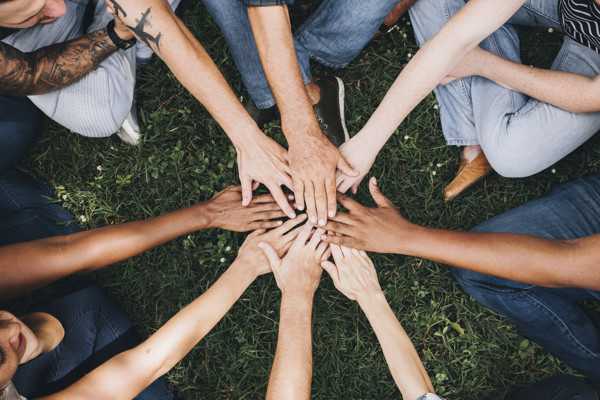
What happens with that danger is that you avoid it, which is what I was doing until I was in this. It was too intimidating and overwhelming to even start with. I love when Sara says, “The best day to start investing is today with just $5 or whatever.” If you wait until you understand the entire thing, you’ll never ever do it. It’s getting that encouragement.
It’s taking action. Speaking of taking action, Sara, if someone who’s reading wants to start an investment group themselves and I’m sure they won’t start in Austin because it’s already the absolute best investing group in Austin, so don’t worry. They won’t be competitors there but if someone wants to start an investing group somewhere else, what advice would you give for them or even any group for that matter? I would love to hear any advice from our members and organizers.
It’s the same advice that Caitlin gave, which is to start it. I would say recruit someone to help you. If you are an expert, recruit a non-expert, a layperson. If you’re a layperson, recruit an expert, and do it as a team. You make a group, whatever enables you to show up every month. We have monthly meetings. A lot of the topics revolve around topics that I’m passionate about because I’m the organizer. We certainly try to bring in diverse viewpoints and meet up on a lot of different topics. When all is said and done, when you’re organizing a group like this, it’s important to make it a group that you can continue to have the energy to show up for.
It can be custom to what you want to learn about or what you want to teach about. Certainly, the starting point is making it manageable to continue to have the meetings and to let this little baby group that you’re starting have a chance to make it to ten years because that’s a lot of meetings. I looked back at our page and we’d have had 113 meetings. I have personally been to the vast majority of them. Maybe I’ve missed 2 or 3 since we’ve been around. That’s important to have it work for you and your life. We’re all volunteers and we’re doing this from a sense of generosity, so you have to make it as simple as possible for people to say yes and show up. Also, for yourself as the organizer to say yes.
One hundred and thirteen meetings you don’t run out of content. That’s the amazing thing. There’s so much still to be learning and to summarize because you said so many great points, collaborating with a co-leader and the importance of that. Finding a co-leader with real complementary skillsets to yourself is very important. Caitlin, you’ve made so many great additions as well from a member perspective. I’d love to hear your thoughts. What makes for that successful Meetup group in your mind?
The holiday meetings have amazing cookies. People bring such delicious treats. It’s worth eleven meetings beforehand to make it to that. In 2020, we didn’t have it. I don’t know how she does it because the range of people that come to I would think that if you think it’s going to attract people like you I would think about, “How could I even advertise at a college campus?” Thinking about people that aren’t you will mean that community aspect is that much stronger and more interesting.
The Austin Women’s Investment Group is so fascinating because I see women at every point in my life either past or future. I don’t know that I would have thought of that on my own but Sara has been able to attract these people from such a range of financial experiences. Also, not people that already have all the experience in the area that you want to build community around and that’s a different recruitment. If someone had invited me to Austin Women’s Investment Group, I would have laughed. I would never have done it if I hadn’t taken her class, so I would have been a tricky target. It’s totally worth it but if there’s a part of it that wants to share with people that haven’t been exposed, you do have to be inviting bouncers. Wherever you go, people that you don’t think are like you.
You wouldn’t have gotten those great cookies as well. It’s a double win there.
I can’t imagine life. People are so creative and generous with their holiday treats.
That’s something that everyone can benefit from. I also want to reiterate what you talked about around community and diversity within community, particularly age diversity and community. All too often, people tend to spend 90% plus of their time around people in similar age demographics to their own. The power of a twenty-year-old being able to be around a 60 to 65-year-old and understand from their life experience and a 60 to 65 year old to be energized and be able to teach and learn from that person that’s 25 or 30.
One of the saddest things in the world that we have is people’s propensity to be around people who are most similar to themselves. That’s a really lost thing and that’s why community is so important. I love that you call that out Caitlin as something that’s incredibly important and special. Let me ask this for each of you, before we go into some rapid fire questions. Is there a message that you would like to share with our readers that we haven’t talked about yet that would be helpful as we think about community and investing? I’d love to hear any messages from either of the two of you. This time let’s start with Caitlin. Any message from you, Caitlin that you’d like to share?
One of the silver linings of the pandemic is that I had moved to California, so I wasn’t able to go to the Austin Women Investing Groups anymore and they moved online because of the pandemic, so I still go. It’s been such a reminder that this sense of community and feeling isn’t geographically specific. The whole country and world are learning that now. I would say this is an amazing opportunity that if you and your community for whatever reason now you don’t feel like you can’t rent a room at the library to invite people once a month to come to do your interest or activity, that it can happen online.
That’s been so exciting. Many people have been joining us from all over. While there’s nothing that can replace the in the room and sharing the cookies feeling, this sense of community has helped with isolation during the pandemic. Even though isolation is exacerbated now, we all have some form of it in our normal lives, even during, “normal times.” It’s like Sara said if you realize I don’t have a community, and I want one, it’s a deliberate action that you can take to join one or to start your own makes a huge difference in your own life no matter what the topic is.
Caitlin may be starting the Marin County Investing Group Community at some point. We will see. It’s a great point around online and what that opens up for so many people around the world that they may not have had access to beforehand. Sara, any message that you’d like to share?
Yes, I do want to go back to something Caitlyn mentioned, because she said something to the effect of, “I don’t know how she does it. I don’t know how this group is what it is.” I will tell you how I did it and it’s because of Meetup. It’s not because I’m on the Meetup Podcast now. Meetup did the work over a couple of years of growing this community by reaching out to women in other similar groups and brought them to us. At the beginning of every group meeting we had in person, we would ask questions like, “What’s your name? What do you do during the day? What are you hoping to learn? How did you find us?” People found us through Meetup.
This community is a self-selecting group, but not based on the boxes that I check. It has become this incredibly diverse group because people are coming in through Meetup. I was active about reading Meetup’s Best Practices, talking to people who reached out to me from Meetup and taking advantage of the pilot programs through Meetup. We got to use some beautiful WeWork spaces and be in different parts of town because of that and offer that for free to our group. We have an awesome photoshoot once and now we can use those photos to show women what our groups look like. It’s like, “Look at this diverse group of amazing women who sit around a table and talk about money.”

Not because I’m on this specific podcast, I tell this to every person who asked me about starting a group because for us and for me, as the organizer, Meetup has been the ideal social media platform to do this. It’s all the best parts of social media. It’s bringing people together and the focus on community has been the most important thing about our group. I could not have done that on my own. I don’t have the capability. I don’t know that number of people but Meetup knows that people who are going to like our group and bring them to us.
The two of you are so amazing. You are. I cannot wait to be able to go to Austin for South by Southwest or some other conference or for the great food trucks that are in the great city of Austin and meet at least Sara first and hopefully, Caitlin, when I head to California. This is so valuable for me and for others and personally, motivational. Caitlin and Sara, this is my favorite part, which is some rapid fire questions where we can learn a little bit more about you. Are you both ready?
Yes.
Here we go. Caitlin, favorite quote.
The T.S. Elliot quote that embarrassingly enough, my parents said at their wedding so that’s why it’s always imprinted on me, but it keeps applying. No matter how much I try to rebel, it keeps coming back to me, “We shall not cease from exploration, and at the end of all our exploring, we’ll be to arrive where we started and know the place for the first time.”
Thank you. Sara, how about you?
I’m going to go with a Warren Buffett-ism. To paraphrase it’s the one that says, “The best time to plant a tree is twenty years ago, and the second best time is today.”
Sara, if you could access a time machine and go back at any point in time and anywhere in the world, where would you go?
I would go to turn-of-the-century Paris.
Caitlin?
You are blowing my mind.
Caitlin and Sara, keep learning things from one another. It’s beautiful. Caitlin, bucket list. You’ve done a million things in life. What is still on the bucket list for you besides investing more in your 401(k)?
That’s a daily mantra on my bucket list is to leave Northern California. Are we talking short-term or medium-term or long-term?
Let’s think of the last few years. Caitlin, what is on your bucket list for the next couple of years?
I’m going to start my own mediation business.
Sara, when was the first time you saw yourself as a leader?
Probably when I started my own business, which came on the heels of starting and Austin Women’s Investing Group.
Caitlin, how far back does your leadership go? Teenage leadership or elementary school leadership?
Does being called bossy in fourth-grade count?
Absolutely. As long as it’s warranted.
It started then.
Let me ask this last question to each of you. What do you most want to be remembered by? Sara, let’s start with you.
I would love to be remembered as being a person who showed people that they can do hard things that they didn’t think that they could do.
I think you’re doing that now and I’m sure you’ll continue to do so. Caitlin, how about you?
I used my curiosity to make things better for the people that didn’t have the privileges that I had.
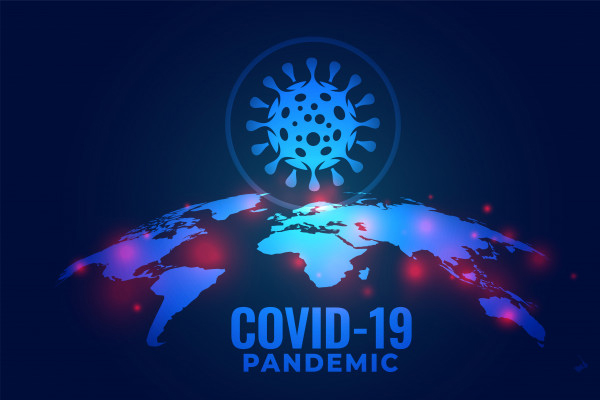
Thank you, again. That relates well to community in that recognizing how lucky one is and recognizing the unique skillset that one could bring to a community. For you, it’s curiosity. It can have untold value for everyone who’s a part of that community and that’s a beautiful thing. It is so wonderful to meet both of you and I do hope that we continue the relationship and thank you both for being part of this episode. I appreciate it.
Thank you.
Thank you so much.
—
Thanks for reading the blog. I enjoyed this episode with Sara and Caitlin. What was great was the ability for Caitlin, who is a novice around finance and investing and Sara, who’s a real expert in the field to both learn from each other and to grow from each other. To me, that’s the beauty of a community where both sides could come from different perspectives and experiences and each of them can come away being that much stronger. If you enjoyed this episode, please subscribe, review on Apple Podcasts and always remember, let’s keep connected because life is better together.
Important Links:
- Austin Women’s Investing Group – Meetup
- Caitlin Meredith
- Sara Glakas – LinkedIn
- Black Barn Financial
- Apple Podcasts – Keep Connected Podcast
About Sara Glakas
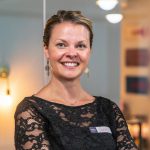 Sara Glakas is the founder of Black Barn Financial, an independent fee-only investment advisory firm in Austin, Texas. Black Barn was designed from the ground up to provide clients with independent advice, a transparent fee structure and a fiduciary standard of care.
Sara Glakas is the founder of Black Barn Financial, an independent fee-only investment advisory firm in Austin, Texas. Black Barn was designed from the ground up to provide clients with independent advice, a transparent fee structure and a fiduciary standard of care.
Black Barn practices the long-view strategy, focusing on strong relationships, communities and growth. Sara has an MBA with a concentration in corporate finance from St. Edward’s University and a B.A. from Washington University in St. Louis. In 2011 she co-founded the Austin Women’s Investing Group, a Meetup group that’s grown to over 2,300 members in Austin and beyond.
About Caitlin Meredith
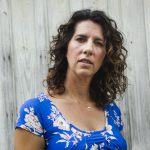 Caitlin Meredith has had a wide-ranging freelance career, landing her everywhere from war zones in Sudan to maximum-security prisons in Texas. After a long career as a field epidemiologist for Doctors Without Borders, she started a new career in journalism, only to follow her curiosity into investigating innocence cases at a Law School clinic. She now works as a criminal defense consultant based in Northern California.
Caitlin Meredith has had a wide-ranging freelance career, landing her everywhere from war zones in Sudan to maximum-security prisons in Texas. After a long career as a field epidemiologist for Doctors Without Borders, she started a new career in journalism, only to follow her curiosity into investigating innocence cases at a Law School clinic. She now works as a criminal defense consultant based in Northern California.
Caitlin has a MA in Journalism from the University of Texas at Austin and an MPH from Tulane University School of Public Health and Tropical Medicine; she graduated from Wesleyan University with a B.A. in psychology and sociology. She has been a member of Austin Women’s Investment Group since 2014. Her favorite Torchy’s Taco is baja shrimp.
Last modified on December 13, 2021


